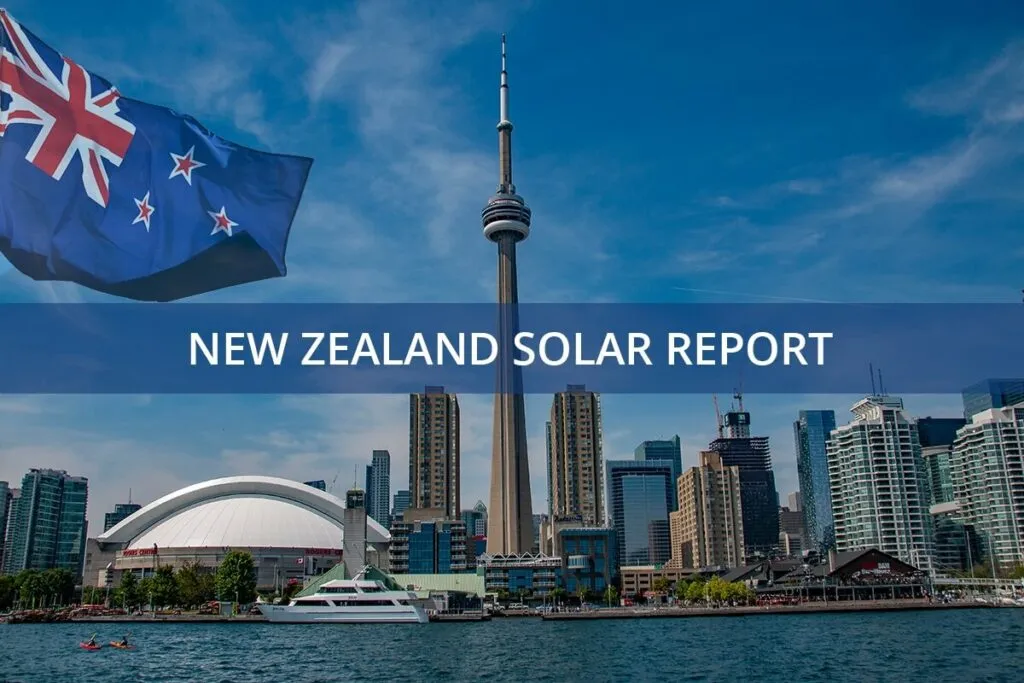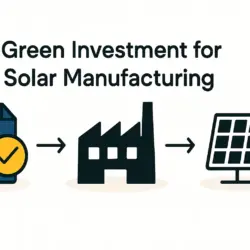Genesis Energy and FRV Australia have dissolved their joint venture focused on developing large-scale solar projects across New Zealand. The decision marks a significant strategic pivot for Genesis toward smaller-scale solar generation, even as the largest solar farm developed under the partnership continues to move forward.
Genesis Energy’s Shift in Focus After NZ solar partnership ends
Genesis Energy, a leading government-backed electricity generator and retail company in New Zealand, has officially terminated its solar development partnership with renewables firm Fotowatio Renewable Ventures (FRV) Australia. The joint venture, which began in early 2022, had an ambitious goal to develop up to 500 MW of solar capacity across the country. An early example of this ambition was when Genesis Energy acquired the 114 MW Edgecumbe solar project as part of the venture’s pipeline.
The partnership’s first major project to break ground was a 52 MW solar farm in Lauriston, Canterbury. However, just months after the project’s completion, Genesis announced it is shifting its focus away from such large-scale developments. The Lauriston project will now continue under FRV Australia’s sole management, while Genesis concentrates on building its portfolio of smaller, distributed solar projects.
Genesis Energy’s Chief Executive Officer, Malcolm Johns, explained that the decision to pivot is part of a broader strategy to improve customer experience and deliver more direct benefits to consumers.
He stated, “With the rapid evolution of technology, we believe that distributed solar generation and battery storage will play a bigger role in the future of energy in New Zealand.” This strategic shift aligns with Genesis’s goal of enhancing its solar development capabilities and providing more innovative, customer-centric solutions, a trend made possible by advancements in the basics of solar panel manufacturing that make smaller systems more efficient and affordable.
FRV’s Role in the Lauriston Solar Farm After NZ solar partnership ends
FRV Australia’s CEO, Carlo Frigerio, confirmed that the company would continue to oversee the Lauriston solar farm, which is currently under construction. Despite the partnership’s end, Frigerio expressed confidence in its legacy, stating, “It has been a pleasure working with Genesis Energy on this project, and we look forward to seeing it through to completion.”
Once operational, the Lauriston solar farm will be a significant asset in New Zealand’s renewable energy landscape. It will contribute to the country’s efforts to reduce carbon emissions and increase the share of renewable energy in the national grid. Projects like this, which rely on a steady supply of quality solar panel raw materials, are crucial for the nation’s green transition.
The termination of the partnership marks a significant change in Genesis Energy’s renewable energy strategy. The company plans to continue developing its solar projects, but with an emphasis on rooftop and ground-mounted installations that are better suited to the evolving energy market and the specific needs of its customers. This move reflects a growing global trend towards distributed energy resources, which can provide greater flexibility and resilience to the grid.
Genesis Energy’s Expanding Solar Portfolio After NZ solar partnership ends
As Genesis Energy moves forward with its new strategy, the company is expected to leverage its experience to expand its portfolio of smaller-scale solar projects. These initiatives will likely include residential and commercial installations, as well as community solar programs designed to provide clean energy directly to local communities. The entire solar panel manufacturing process has been refined over the years to support this kind of distributed deployment.
The company’s focus aligns with the country’s ambitious national energy goals. According to a recent New Zealand Solar Panel Manufacturing Report, the nation aims to achieve 100% renewable electricity generation by 2030. By investing in smaller-scale solar projects, Genesis Energy is helping accelerate this transition to a low-carbon economy while ensuring its customers have access to affordable and reliable energy.
The end of the partnership marks a new chapter for both companies. While Genesis Energy sharpens its focus on distributed solar capabilities, FRV Australia will continue to expand its presence in the New Zealand market, with the Lauriston solar farm serving as a key pillar in its project pipeline.
As the energy landscape continues to evolve, Genesis Energy’s shift highlights the importance of innovation and adaptability. The decision underscores how the cost-effectiveness of modern solar panel manufacturing machines and a deeper understanding of the solar panel manufacturing plant cost breakdown are enabling new business models. By embracing these changes, the company is well-positioned to meet the changing needs of its customers and contribute to New Zealand’s clean energy future.
If you’re interested in diving deeper into the technical and business aspects of the solar industry, consider exploring our free e-course to expand your knowledge.



